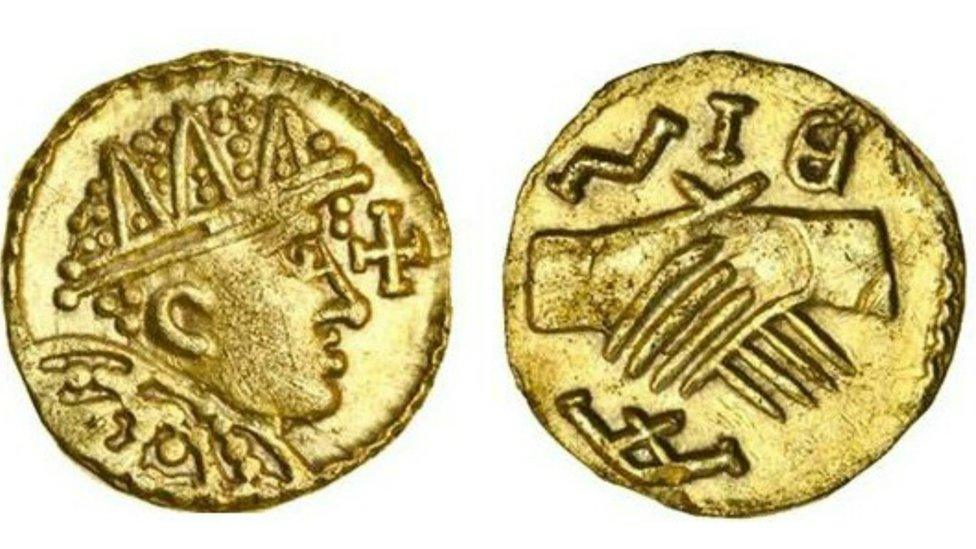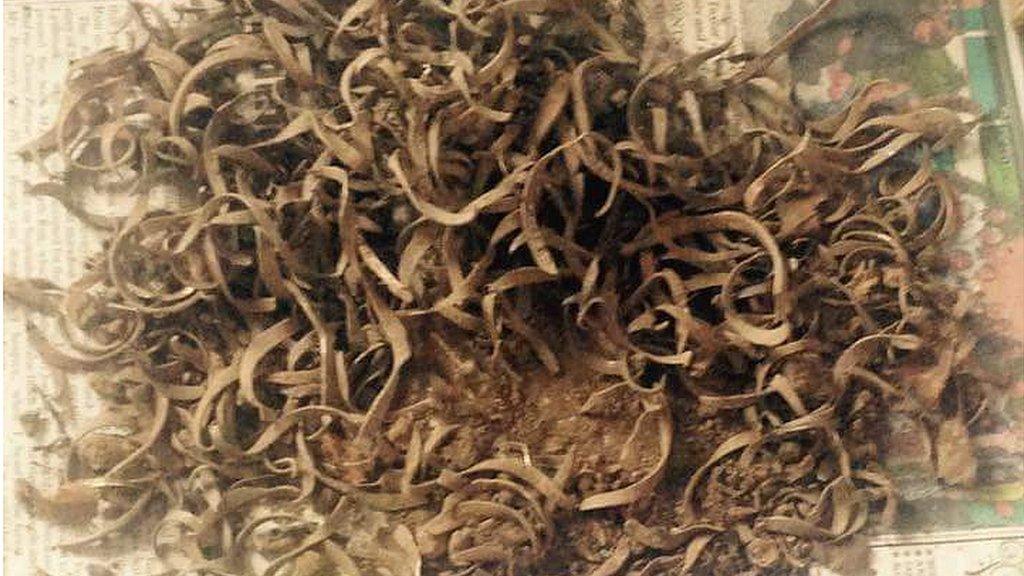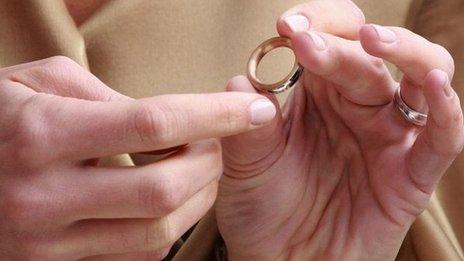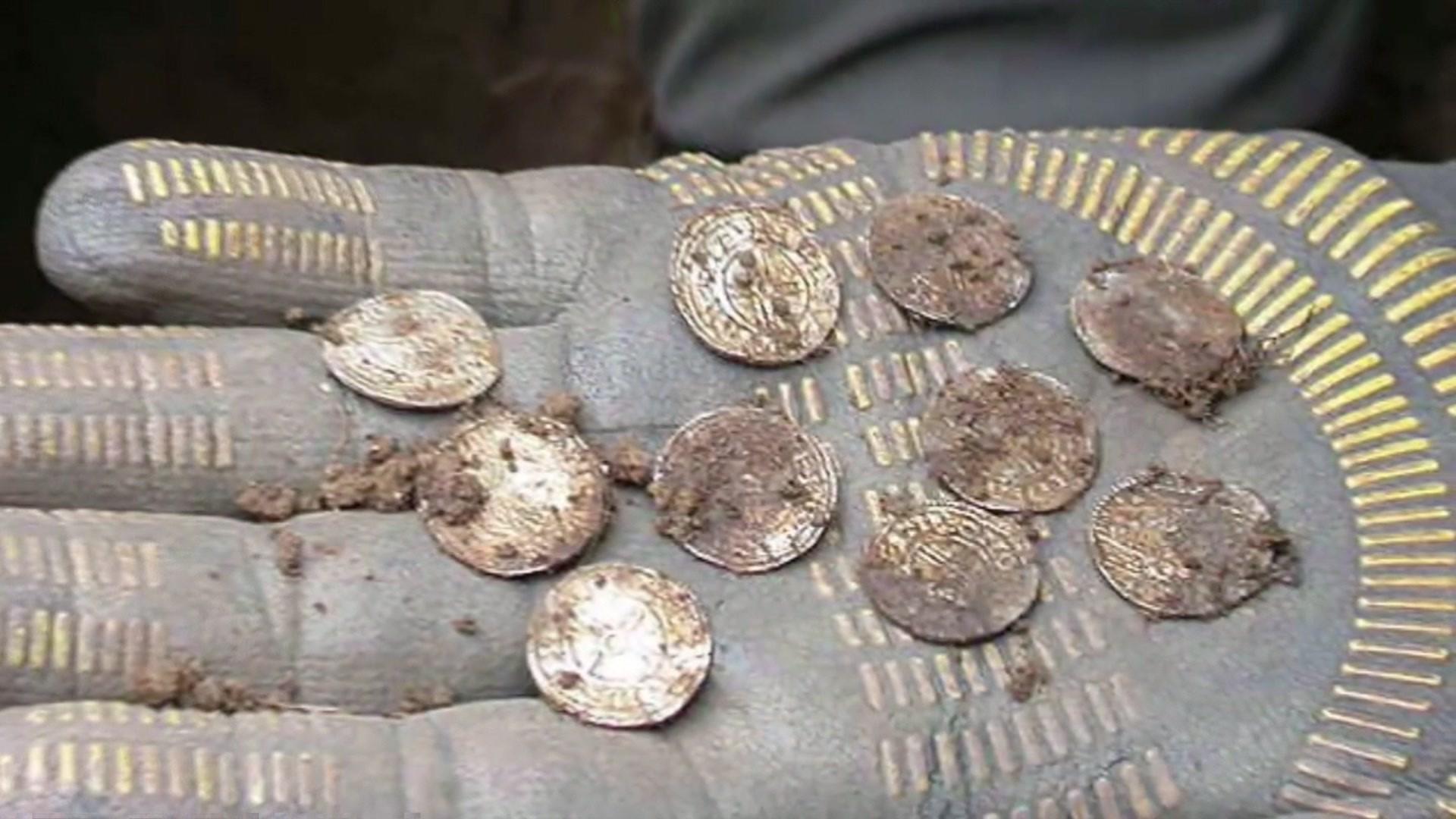'Rare' Saxon coin found in Wiltshire field sells for thousands
- Published

The coin was discovered in April by a metal detectorist in the Wiltshire village of East Grafton, near Marlborough.
An "excessively rare" Saxon gold coin that was discovered near a Wiltshire village has been sold for £21,600.
The coin, said to date from the dawn of English Christianity, was unearthed in East Grafton by a metal detectorist.
Richard Bishop, from auctioneers Spink and Sons, said the final sale price was a "magnificent achievement" for such a "small but perfectly formed gold thrymsa".
Wiltshire Museum bought the coin after a fundraising campaign.
It features a head motif with a Christian cross and is believed to have been struck in modern-day France.
'Wonderful addition'
Experts believe it was in circulation just after the burial of King Raedwald at Sutton Hoo around AD 625.
Only five examples of this type of coin have ever been found.
Wiltshire Museum director David Dawson, said they were "delighted" to have bought the "important coin", which he said will help experts understand the importance of the Vale of Pewsey and the Kingdom of Wessex in the Saxon period.
The museum had donations from all over the world, including grants from Arts Council England, Victoria and Albert Purchase Grant Fund and the Art Fund.
Stephen Deuchar, director of the Art Fund, said: "Very few coins of such quality exist... It's a wonderful addition to the museum's collection."
- Published18 November 2015

- Published31 October 2014

- Published2 January 2015
